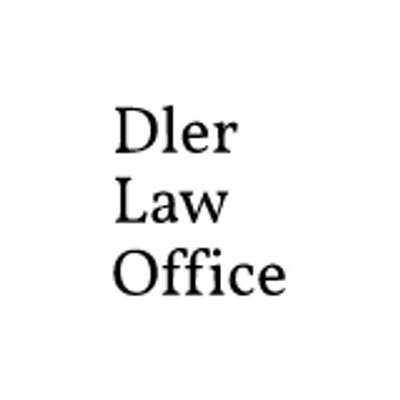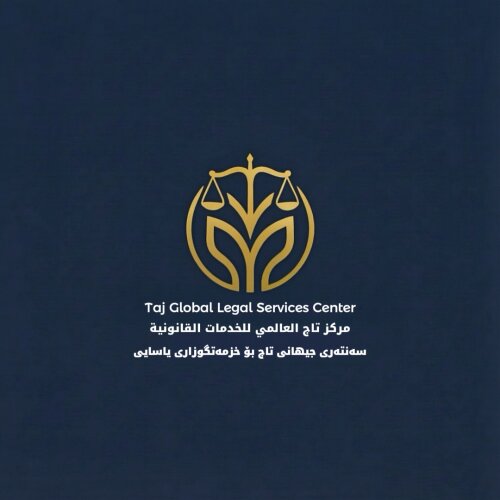Best ADR Mediation & Arbitration Lawyers in Iraq
Share your needs with us, get contacted by law firms.
Free. Takes 2 min.
Or refine your search by selecting a city:
List of the best lawyers in Iraq
About ADR Mediation & Arbitration Law in Iraq
Alternative Dispute Resolution (ADR) mechanisms, particularly mediation and arbitration, are increasingly recognized as effective tools for resolving disputes in Iraq. During the past few years, Iraq has made efforts to modernize its legal framework to support ADR processes. Arbitration, in particular, is encouraged as a less adversarial and more efficient way of settling commercial and civil disputes outside the traditional court system. While the use of ADR is growing, there is still a need for greater awareness and understanding of these mechanisms among the general public and legal practitioners.
Why You May Need a Lawyer
People may require legal help in the field of ADR mediation and arbitration for several reasons:
- Understanding Complex Contracts: Often, ADR clauses are embedded in complex commercial contracts. A lawyer can help decipher these clauses and ensure they are fair and enforceable.
- Drafting ADR Agreements: Legal expertise is essential in drafting effective ADR agreements that clearly define the scope, rules, and procedures of mediation or arbitration.
- Representation in ADR Proceedings: A lawyer can represent parties during ADR processes to ensure their rights are adequately protected and the outcome is fair and just.
- Integrating Cultural and Legal Nuances: Due to Iraq's unique legal and cultural landscape, a lawyer can help navigate the specific legalities related to ADR in Iraq.
- Enforcement of ADR Outcomes: Ensuring that the outcome of mediation or arbitration is enforced can often require legal intervention, especially in cross-border disputes.
Local Laws Overview
Iraq’s legal framework for ADR is still evolving, but certain key aspects are particularly relevant:
- The Civil Code of Iraq provides the general framework for obligations and contracts, influencing how ADR clauses are interpreted.
- Arbitration processes in Iraq do not currently have a dedicated legal framework equivalent to international arbitration standards, but the country has shown interest in adopting such frameworks in the future.
- Mediation is often encouraged informally in civil disputes to reduce the burden on courts.
- International treaties and conventions, such as the New York Convention on the Recognition and Enforcement of Foreign Arbitral Awards, also play a significant role in shaping arbitration practices in Iraq.
Frequently Asked Questions
What is the difference between mediation and arbitration?
Mediation is a facilitated negotiation process where a neutral third party assists disputing parties in reaching a voluntary agreement. Arbitration, on the other hand, involves a neutral third party who acts as a judge, making decisions that are typically binding for the parties involved.
Are ADR agreements legally binding in Iraq?
While ADR agreements can be recognized legally in Iraq, enforcement may depend on the specific contractual terms and the adherence to applicable international conventions.
Can any dispute be resolved through ADR?
Most commercial and civil disputes can be addressed through ADR; however, criminal cases and some family law matters typically fall outside the scope of ADR.
How long does an arbitration process typically take in Iraq?
The length can vary depending on the complexity of the case, but arbitration is generally faster than traditional court proceedings.
Is it expensive to pursue ADR in Iraq?
Costs can vary, but ADR is often seen as a cost-effective alternative to litigation, especially when considering the time and resources involved in court cases.
Can parties choose their mediator or arbitrator?
Yes, parties involved in ADR usually have the flexibility to agree on the mediator or arbitrator, ensuring a neutral choice acceptable to both.
What qualifications should an arbitrator or mediator have in Iraq?
While Iraq does not have stringent educational requirements, experience in the relevant field, familiarity with Iraqi laws, and a reputation for impartiality are important considerations.
Is legal representation necessary for ADR?
While not mandatory, having a lawyer can be beneficial to navigating the complexities of ADR proceedings and protecting the parties' interests.
Is there a chance to appeal an arbitration decision?
Arbitration decisions are usually final, and the grounds for appeal are limited, often requiring proof of procedural errors or arbitrator misconduct.
How does Iraq handle international arbitration cases?
Iraq is influenced by international arbitration conventions, providing a framework for recognizing and enforcing foreign arbitral awards, subject to local legal conditions.
Additional Resources
For further assistance, consider reaching out to the following resources:
- The Iraqi Bar Association - A resource for finding qualified lawyers specializing in ADR.
- The Iraqi Ministry of Justice - Provides updated information on laws and regulations concerning ADR.
- International Chamber of Commerce (ICC) - They offer resources and guidelines for international arbitration practices.
- Local law firms specializing in ADR - They can offer personalized legal advice and representation throughout the ADR process.
Next Steps
If you need legal assistance in ADR mediation and arbitration, consider the following steps:
- Identify the nature of your dispute and whether it is suitable for ADR.
- Seek initial consultations with legal professionals to understand your options.
- Choose the appropriate ADR mechanism best suited for your situation-mediation or arbitration.
- Prepare all necessary documentation and evidence relevant to your dispute.
- Engage with a lawyer or a qualified ADR practitioner to assist with negotiations and proceedings.
Lawzana helps you find the best lawyers and law firms in Iraq through a curated and pre-screened list of qualified legal professionals. Our platform offers rankings and detailed profiles of attorneys and law firms, allowing you to compare based on practice areas, including ADR Mediation & Arbitration , experience, and client feedback.
Each profile includes a description of the firm's areas of practice, client reviews, team members and partners, year of establishment, spoken languages, office locations, contact information, social media presence, and any published articles or resources. Most firms on our platform speak English and are experienced in both local and international legal matters.
Get a quote from top-rated law firms in Iraq — quickly, securely, and without unnecessary hassle.
Disclaimer:
The information provided on this page is for general informational purposes only and does not constitute legal advice. While we strive to ensure the accuracy and relevance of the content, legal information may change over time, and interpretations of the law can vary. You should always consult with a qualified legal professional for advice specific to your situation.
We disclaim all liability for actions taken or not taken based on the content of this page. If you believe any information is incorrect or outdated, please contact us, and we will review and update it where appropriate.
Browse adr mediation & arbitration law firms by city in Iraq
Refine your search by selecting a city.
















